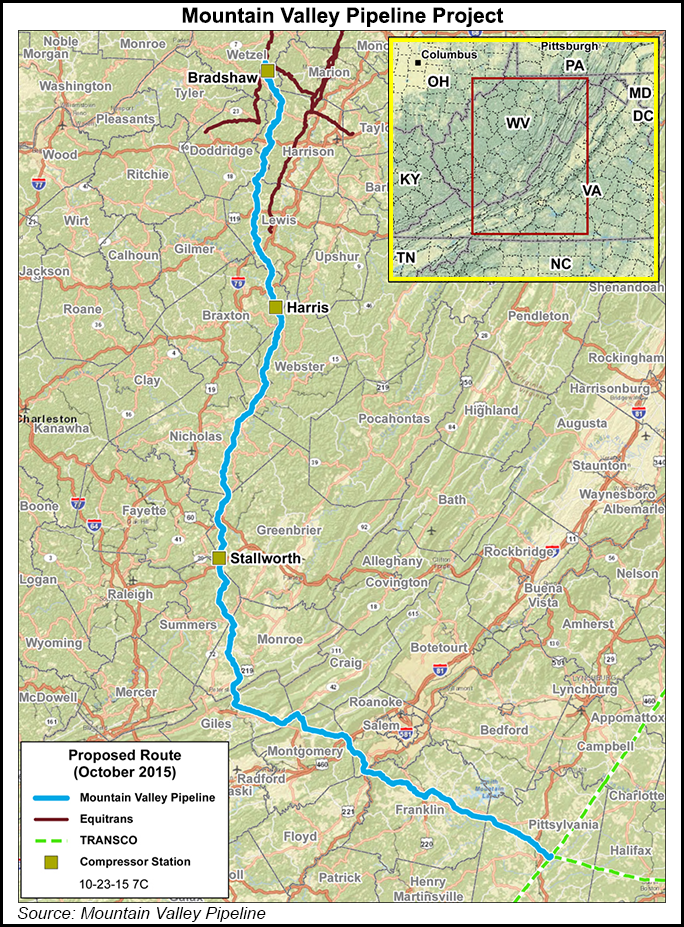Regulatory | Infrastructure | NGI All News Access | NGI The Weekly Gas Market Report
Supreme Court Denies Hearing MVP Property Rights Case
The U.S. Supreme Court has denied a petition filed by a group of Virginia landowners that challenged the Mountain Valley Pipeline (MVP) and the constitutionality of the Natural Gas Act (NGA).

The high court won’t hear the case after denying the petition in an order on Tuesday. The landowners challenged Congress and the authority delegated to FERC under the NGA. The group argued that private companies should not be allowed to seize private property for their financial gain, and natural gas pipelines should not be considered the sort of public use that justifies eminent domain. MVP invoked eminent domain to condemn landowner property.
The landowners filed their petition with the high court after the U.S. District Court for the Western District of Virginia dismissed the case and said it did not have jurisdiction over the constitutional questions. The U.S. Court of Appeals for the Fourth Circuit affirmed the dismissal. Petitioners wanted the Supreme Court to reverse the appeals court’s judgment so that the district court could hear the arguments.
Gentry Locke, the firm that represented the landowners, said while the landowners never had a chance to argue the constitutional questions raised by their case, the issues are likely to come before federal courts again.
In briefs opposing the petition, however, both the Federal Energy Regulatory Commission and MVP noted that federal courts have repeatedly resolved the constitutional claims that were asserted by the petitioners.
The 300-mile MVP would move 2 Bcf/d of Appalachian natural gas to markets in the Southeast. The $4.6 billion project has been plagued by legal challenges, permit issues, work stoppages and bad weather.
Two other cases involving the Atlantic Sunrise pipeline and FERC are still pending before the Supreme Court, but they don’t involve the same issues raised by the Virginia landowners.
© 2024 Natural Gas Intelligence. All rights reserved.
ISSN © 1532-1231 | ISSN © 2577-9877 | ISSN © 1532-1266 |
